Our Network
Members A-H

Colin Adrain
Patrick G Johnston Centre for Cancer Research; Queen's University Belfast
UKProNet Co-lead
My lab is interested in understanding how membrane protein biogenesis, quality control and proteolysis of membrane proteins regulate cell signalling during health and disease. We have a particular interest in the interplay between metabolism, inflammation and growth control in mammals. My lab uses a combination of cellular biochemistry and organismal (mouse) physiology in our studies.
Keywords: Protein transport; Model organisms (C. elegans, Drosophila, etc); Protein degradation

Maruf Ali
Department of Life Sciences, Imperial College London
Our lab aims to understand the molecular mechanisms of stress signalling and protein homeostasis within the ER. We utilise a multidisciplinary approach that encompasses structural biology, biochemistry and cellular techniques, towards developing novel strategies for therapeutic intervention in human diseases.
Keywords: Protein folding and chaperones; Stress responses; Post-translational modifications (PTMs)
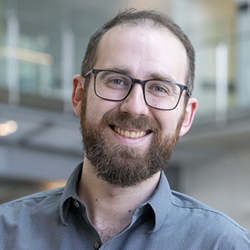
David Balchin
Protein biogenesis lab, The Francis Crick Institute
Our group focusses on the molecular mechanisms underlying protein maturation. We use structural, biophysical and cell biological approaches to understand how nascent proteins fold on the ribosome, and how this process is assisted by molecular chaperones. We study protein biogenesis in both bacteria and human cell culture.
Keywords: Protein folding and chaperones; Protein translation and ribosomes; Mammalian models / cell culture

Joseph Bateman
Basic and Clinical Neuroscience, King's College London
We are interested in how mitochondria communicate with the cell through 'mitochondrial stress signalling pathways' in neurons. We have shown that when neurons are stressed or damaged mitochondrial signalling pathways are activated. Excitingly, we can target these pathways to improve neuronal function, suggesting that targeting mitochondrial signalling pathways might be a way to treat and prevent mitochondrial diseases and neurodegenerative diseases such as Alzheimer's and Parkinson's disease.
Keywords: Model organisms (C. elegans, Drosophila, etc); Mitochondria; Stress responses

Adam Benham
Department of Biosciences, Durham University
My research group is interested in protein quality control in the endoplasmic reticulum, focusing on protein disulfide isomerases (PDIs), oxidoreductases and molecular chaperones. We also have an interest in proteostasis and the presentation of antigens by MHC class I and II molecules of the immune system.
Keywords: Protein folding and chaperones; Mammalian models / cell culture; Stress responses

Jatin Burniston
Research Institute for Sport & Exercise Sciences, Liverpool John Moores University
We investigate skeletal muscle ageing using dynamic proteome profiling in humans, animal models and cells. Dynamic proteome profiling involves stable isotope labelling and peptide mass spectrometry techniques to measure the abundance, turnover rate and modification status of proteins.
Keywords: Ageing, Post-translational modifications (PTMs), Protein translation and ribosomes;

Bernadette Carroll
School of Biochemistry, University of Bristol
UKProNet Co-lead
We are interested in how stress and mitogenic cues are sensed and integrated by the evolutionarily conserved protein kinase, mechanistic Target Of Rapamycin Complex 1 (mTORC1) to dictate downstream anabolic vs catabolic responses, particularly autophagy. Central to our work is understanding how the lysosome supports the mTORC1-autophagy axis, and how its dysregulation contributes to cellular senescence, a key driver of ageing. We use in vitro molecular cell biology and biochemistry techniques, and are developing in vivo zebrafish models.
Keywords: Mammalian models / cell culture; Lysosome; Ageing
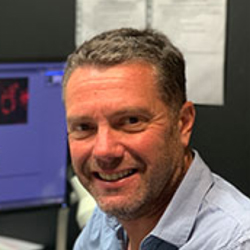
Paul Chapple
Faculty of Medicine and Dentistry, Queen Mary University of London
Our research is centred on understanding the role of cellular stress responses and molecular chaperones in health and disease, with a focus on neuronal and endocrine systems. This has included studies of multiple rare diseases and in particular neurodegenerative disorder.
Keywords: Neurodegeneration; Protein folding and chaperones; Mammalian models / cell culture

John Christianson
Botnar Research Centre, University of Oxford
Our lab investigates the mechanisms and regulation of ubiquitin-proteasome dependent protein degradation from the endoplasmic reticulum (ER), commonly known as ER-associated degradation (ERAD). We study how ubiquitin ligase complexes assemble, engage and degrade substrates, and contribute to the unfolded protein response (UPR) that mitigates proteotoxic stress arising in the ER. Through their detailed understanding, our aim is to understand how best to leverage the ERAD and UPR pathways for therapeutic benefit in the treatment of cancer.
Keywords: Stress responses; Protein degradation; Cancer
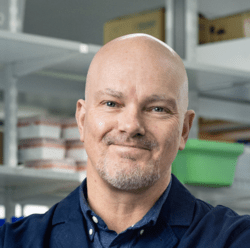
Simon Cook
Signalling Programme, The Babraham Institute
UKProNet Co-lead
My lab is interested in signal transduction pathways and especially links between protein phosphorylation and protein degradation in the context cellular responses to stress. Current projects are focused around RAF-MEK-ERK1/2 signalling, the Integrated Stress Response and the DYRK family of protein kinases.
Keywords: Post-translational modifications (PTMs);Condensates; Protein degradation
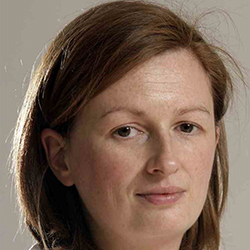
Vicky Cowling
Cancer Research UK Scotland Institute (Beatson)
We study the regulation and function of RNA cap modifications, looking at how cellular signalling pathways modify the RNA capping enzymes. We investigate the impact of RNA cap regulation in cancer, T cells, neurons and embryonic stem cells. Our aim is to understand the biological response to RNA cap regulation and its value as a therapeutic target.
Keywords: Cancer; Neurodegeneration; Development
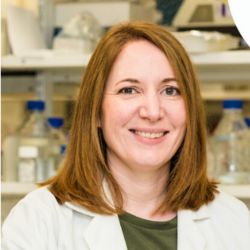
Lisa Crawford
Patrick G Johnston Centre for Cancer Research, Queen's University Belfast
Pathways involved in maintaining proteostasis represent an important biological vulnerability for Multiple Myeloma, exemplified by the success of proteasome inhibitors (PIs) in treating the disease. My lab focuses on understanding dysregulation of proteostasis in PI sensitive and resistant MM and applying this knowledge to identify therapeutic opportunities.
Keywords: Cancer; Post-translational modifications (PTMs); Protein degradation

Della David
Signalling ISP, Babraham Institute
UKProNet Director
Our research group studies the intracellular and extracellular proteostasis mechanisms that protect against protein aggregation during ageing. We use mainly the nematode Caenorhabditis elegans as our ageing model of choice for genetic, proteomic and imaging based experimental approaches. Ultimately, our aim is to discover ways to promote healthy ageing and alleviate age-related diseases.
Keywords: Model organisms (C. elegans), Ageing, Aggregation.

Martin Denzel
Altos Labs
We are interested in the role of the protein homeostasis network in aging and its role in providing resilience to organisms. We have a focus on ribosomal biology and use C. elegans and tissue cultures.
Keywords: Ageing; Mammalian models / cell culture; Protein translation and ribosomes
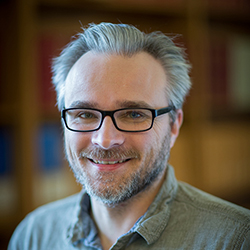
Oliver Florey
Signalling ISP, Babraham Institute
Organiser of the 2024 ProteostasisUK Conference
Our lab studies the molecular mechanisms involved in maintaining lysosome homeostasis during stress associated with ageing and disease. We have a strong focus on a non-canonical autophagy pathway termed CASM, which we are investigating as a novel therapeutic opportunity.
Keywords: autophagy, lysosome
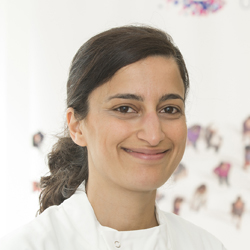
Noor Gammoh
Institute of Genetics and Cancer, University of Edinburgh
The lab is interested in understanding the basic molecular biology of autophagy and its relevance in disease. By focusing on devastating diseases (such as brain cancers and neurodegeneration), we hope to integrate our knowledge from basic cell biology to disease modelling in order to develop better treatment approaches .
Keywords: Cancer; Protein degradation; Lysosome

Daniel Gibbs
School of Biosciences, University of Birmingham
N-degron pathway and and co-translational protein quality control mechanisms in the regulation of plant growth, development and environmental responses.
Keywords: Protein translation and ribosomes; Protein degradation ;Plants
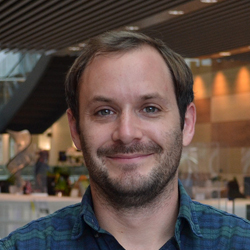
William Grey
York Biomedical Research Institute, Department of Biology, University of York
We are studying the role of protein homeostasis in normal and malignant stem cell development across stem cell systems, with a principle focus on the transformation of healthy Haematopoietic Stem Cells to malignant Leukaemic Stem Cells. We also lead the U.K. patient derived xenograft biobank in association with the Mary Lyon Centre at MRC Harwell.
Keywords: Mammalian models / cell culture; Protein degradation; Post-translational modifications (PTMs)
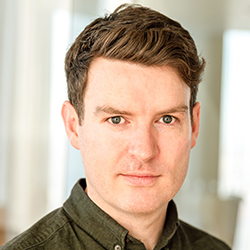
Colin Hammond
Department of Molecular & Clinical Cancer Medicine, University of Liverpool
Histone supply chains implicate the collaboration between histone chaperones and molecular chaperones. They underpin chromatin biology and are crucial for cellular proliferation. We use cancer cell lines to uncover molecular mechanisms linked to histone supply homeostasis and patient-derived tissue samples to target these processes in disease. Our research employs a mixture of mechanistic cell biology, structure-guided proteomic assays and state-of-the-art spatial technologies and is at the interface of fundamental and clinical research.
Keywords: Protein folding and chaperones; Mammalian models / cell culture; Cancer
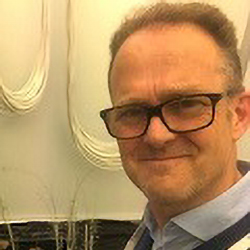
Michael J. Holdsworth
School of Biosciences, University of Nottingham
My research work in recent years has focused on understand the importance of oxygen sensing in plants, and discovering the roles that the N-degron pathways of ubiquitin-mediated proteolysis play in regulating plant development and responses to the environment.
Keywords: N-degron pathways, oxygen-sensing, hypoxia, nitric oxide sensing